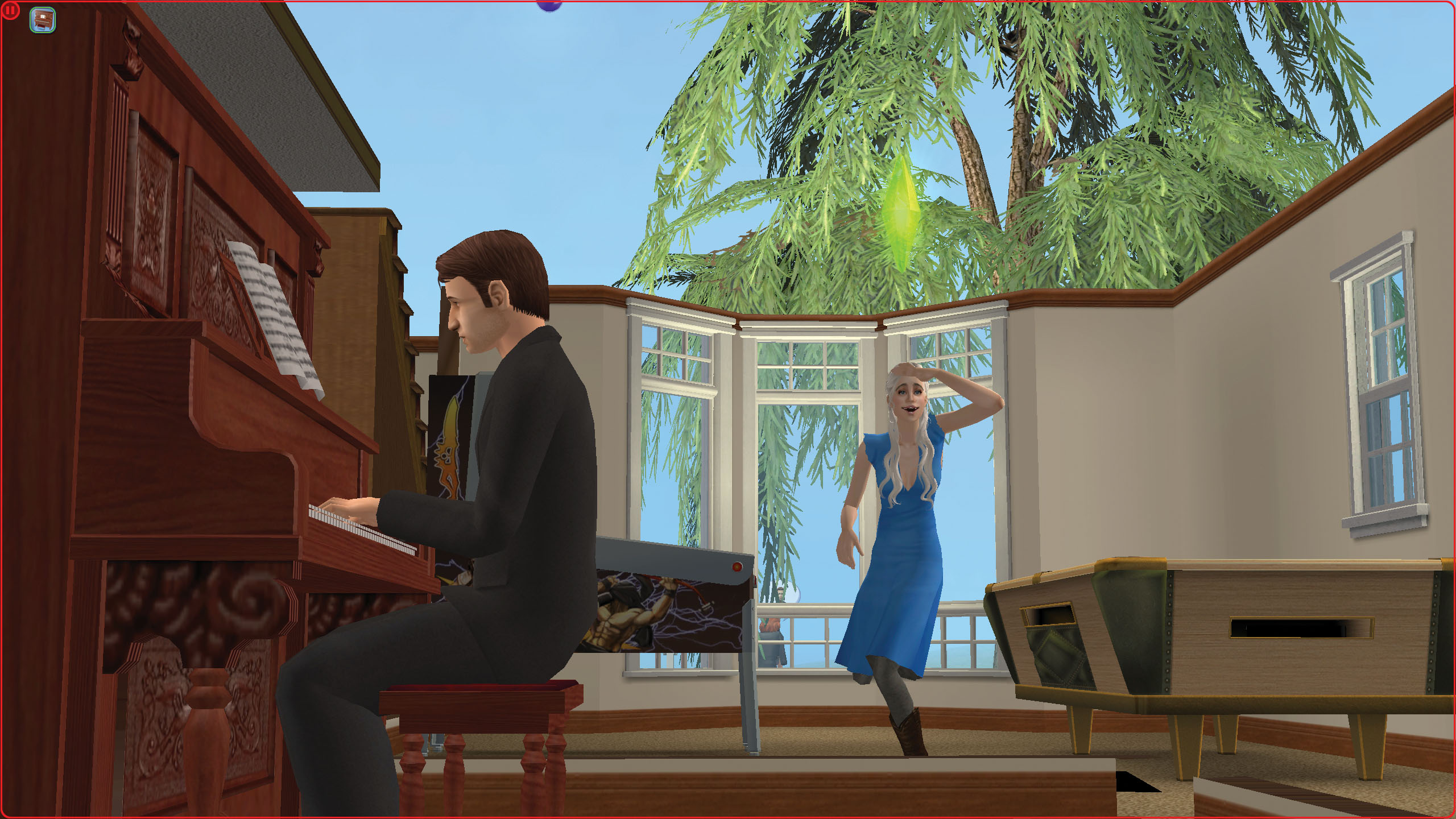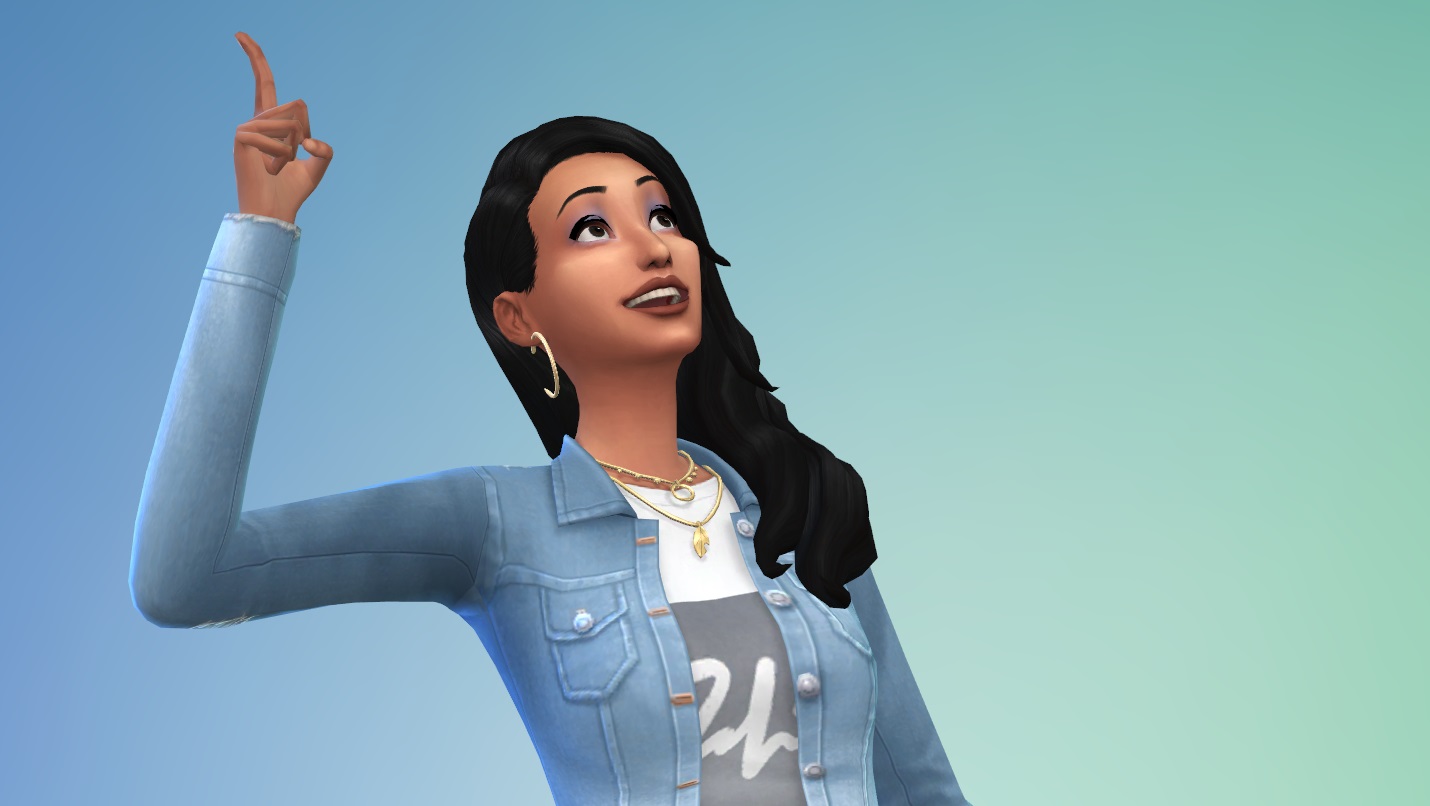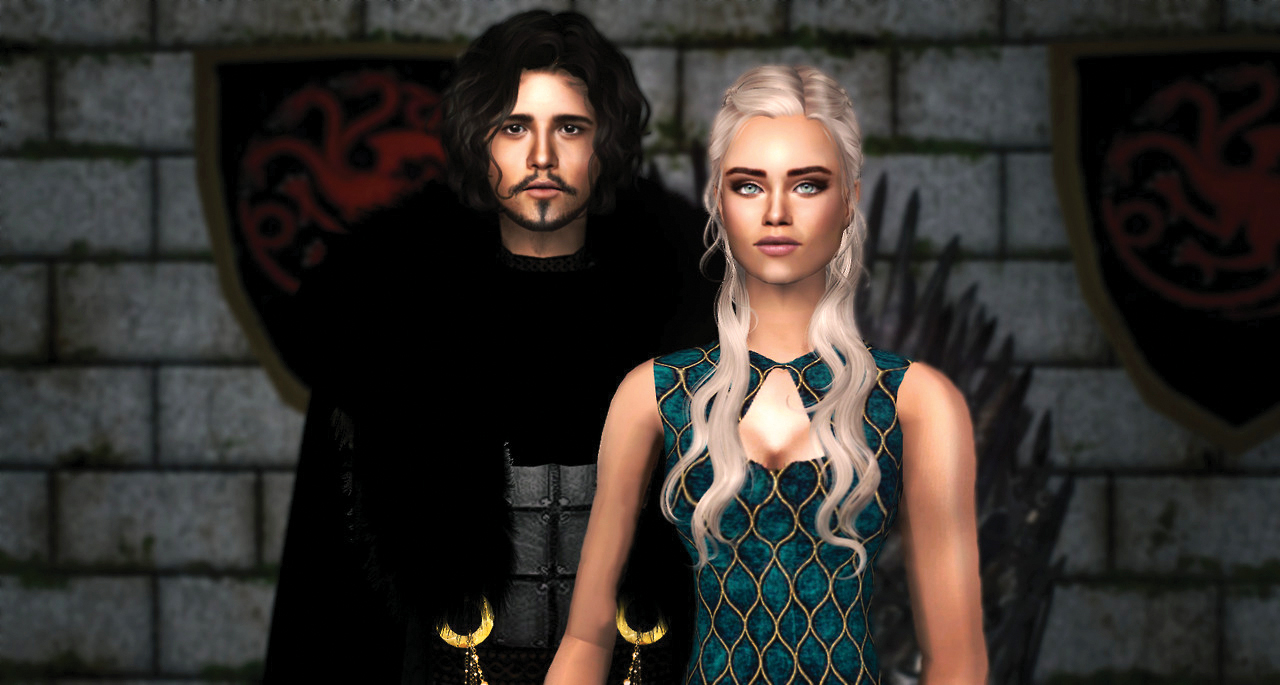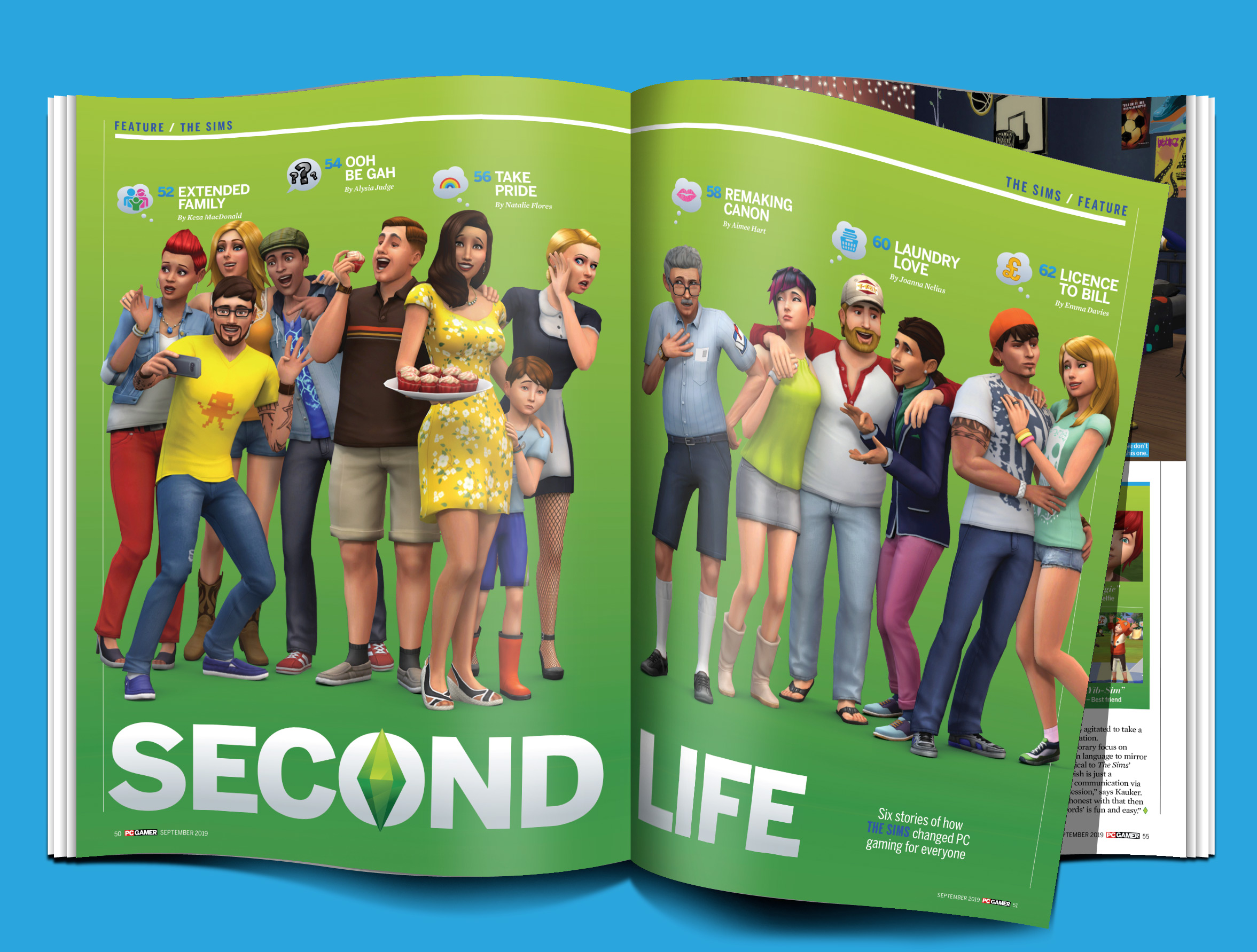Making your favourites kiss in The Sims
Remaking canon.

"If you don’t like it, why don’t you make something else that you do like?” is one of those questions that many inside fandom spaces have heard, especially when directed towards minorities, and will continue to hear probably until the end of time. It’s a crappy retort that, at its heart, pushes aside real, troubling issues in favour of the artist’s vision.

Sims 4 cheats: Life hacks
Sims 4 mods: Play your way
Sims 4 CC: Custom content
Sims 4 DLCs: Worth it?
Sims 5: What we know so far
My favourite character in The Walking Dead, Andrea, met a grisly end in the third season finale. So, like any other reasonable person, I decided I was going to change the ending completely. Not by petitioning a complete rewrite of the season, I’ll leave that to Game of Thrones fans, but by making a new one by myself in The Sims 2.
As I found out, I wasn’t the only one who handled my love for a certain media turning sour by turning to The Sims, specifically The Sims 2. There were others like Shannon, who told me they used the game in order to change what had occurred in media that they liked. These weren’t just changes like “I didn’t like the ending of a show”, sometimes, they were to rewrite aspects that they felt were completely negligent to the media’s minority audience.

One example she gave me was when the show The 100 killed off one of its major LGBTQ+ characters, Lexa, back in 2016. There was a huge protest at the time, with many fans feeling as though they had been finally given the climax of a loving relationship between Lexa and the protagonist, Clarke, only to have her brutally killed off by a stray bullet.
Reboot

This week we're publishing a variety of stories about The Sims, taken from issue 334 of PC Gamer magazine. For more beautifully detailed articles about the best stories in PC gaming, consider subscribing to the magazine's US or UK editions.
> Stuff, not stories, forms the real heart of The Sims series
> Laundry was the best and worst thing to happen to The Sims
> How to speak like the Sims
> How The Sims has spearheaded queer representation in gaming
> The Sims 2 served as an extension of an already-embarrassing teen existence
> Making your favourites kiss in The Sims
While other fans were doing petitions and asking that LGBTQ+ audiences and characters be taken more seriously, Shannon chose to act in her own way.
“Lexa and Clarke... I loved them a lot, and I still do,” she says. “When [Lexa] died I just knew I had to go back onto The Sims 2 and make some changes. I couldn’t let the relationship that helped me come out to my friends and family just fizzle out like that. It was just too personal, too raw.”
So the first thing Shannon did was download mods of the two characters, throwing them into a world that was very different from their apocalyptic beginnings. They started as roommates, but with different jobs that kept them separate. Clarke was a burglar that worked nights, while Lexa was an actress.
The biggest gaming news, reviews and hardware deals
Keep up to date with the most important stories and the best deals, as picked by the PC Gamer team.
“At first they rarely talked to one another. Their jobs kept them apart, kind of like in the TV show. But over time the slow-burn blossomed into a romance that left them with two kids and a dog and cat. So I’d say it was worth it.”
As for why she picked The Sims 2 despite 3 and 4 being available, Shannon added that, “I’d grown up with the game, and I knew my way around the modding community for that game a lot more than I did with the others. I guess it was also because I was nostalgic and felt that, after so many years of not playing, I could play the game without having to relearn everything.”
Another player, Olka, told me that their use of the game was a much more immersive experience about getting to control their favourite characters. It also had something to do with being able to log onto Sims Resources and download mods for what they wanted rather than waste time.
“I always preferred to use characters I enjoyed until, later down the line, I started to include characters that I’d made up myself when I was older.” Olka later added that sometimes it was the mundanity of their favourite characters making something as simple as mac and cheese, where canon and plot twists and awful events couldn’t touch them, that made playing so satisfying.
The Sims can easily be considered utopian, but the reasons why have always varied. For Shannon and Olka, The Sims can help “right the wrongs” of their favourite media, channelling their emotions into a world they can change for the better. It may not change what happened in canon, but it can allow fans to take control in cathartic ways. Game of Thrones fans? Take note.

